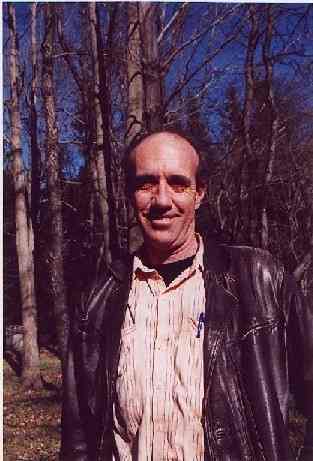QUESTIONS
"Great knowledge is broad and unhurried, while small understanding is cramped and busy"
Zhuangzi as quoted in The Great Transformation by Karen Armstrong
I love Karen Armstrong's books. I always learn something new about history, religious or otherwise and I always enjoy the wonderful insights she brings forth when she writes about her subject. My fondest wish is to have a nice long conversation with her some day.
The quote above is one of those sayings that you can use to examine the self. Is my knowledge broad and unhurried or do I remain small? My teacher, Pir Vilayat used to say something similar. He would say that we see ourselves as puny and unable to affect anything vast while our beings are magnificent and glorious. We live in a small illusion when all the while our true reality is immeasurable.
As I read The Great Transformation I am seeing that one of the most important ideas or philosophies to come from the Axial Age is self examination or what the Buddha called Mindfulness. One continually questions oneself. To sit and contemplate, to examine, to pursue each thought to its ending, to ceaselessly pay attention to your own reality is perhaps the most important of spiritual practices. This I have believed for many years but I really did not know that it all started over 2500 years ago. Humanity has actually learned a thing or two.
It is our habit, in this age of disappointment, to look to the ancient world as a time of peace and unity and wonderful simplicity. We want to believe that there was a time when humanity actually was peaceful. According to history it was not so. In fact, when you read The Great Transformation, besides the wonderful spiritual philosophies that were being developed, the one very obvious fact was that every one was in a constant state of warfare. The sage would look upon this warfare in any of several ways but usually in one way, that the wars raging around them and in which they were sometimes unavoidably involved, were merely small cramped busy understandings. What is different today is not that the cramped understandings have gotten any looser but that there are more and more people who are reaching for that true broad knowledge. Just the explosion of spiritual books in the past 100 years should tell you that. The only real question then is, what are you personally doing to enhance the breadth of your understanding?
In my last blog I wrote about endings and how all things eventually pass away into dust. "What then do we accomplish in the world if eventually it is all swept away into the wind as ashes?" A couple of people commented that it was what we did in between birth and death that really counts and of course that is true. However, there is more. There is a state of being that is hinted at in the deeper spiritual texts but which cannot really be explained. For centuries humanity has been talking around it, trying to say that which cannot be said, continually reaching for the unknowable.
"This craving for the attainment of what is unattainable, gives the soul a longing to reach life's utmost heights. It is the nature of the soul to try and discover what is behind the veil; it is the soul's constant longing to climb heights which are beyond his power; it is the desire of the soul to see something that it has never seen; it is the constant longing of the soul to know something it has never known. But the most wonderful thing about it is that the soul already knows there is something behind this veil, the veil of perplexity; that there is something to be sought for in the highest spheres of life; that there is some beauty to be seen; that there is Someone to be known who is knowable. This desire, this longing, is not acquired; this desire is a dim knowledge of the soul which it has in itself." Hazrat Inayat Khan
You will notice that Pir O Murshid states that the knowledge is already there, that it is intrinsic to our beings, it is just up to us to discover how to unveil this unattainable knowledge. How then to do it when this wisdom is so obviously unknowable? Well you can't get there from here.
On the same page as the first quote I used is a conversation between Confucius and his student Yan Hui:
"I'm gaining ground!" Yan Hui had announced on day.
"What do you mean?" asked Confucius.
"I've forgotten Humanity and Duty completely." Yah Hui replied
"Not bad!" admitted Confucius. "But that's still not it."
A few days later, Yah Hui exclaimed: "I've forgotten ritual and music completely."
"That's still not it." said Confucius.
But finally Yah Hui surprised his master. "I'm gaining ground!" he beamed. "I sit quietly and forget."
Confucius shifted uneasily. "What do you mean?" he asked.
"I let the body fall away and the intellect fade." Said Yah Hui. "I throw out form, abandon understanding – and then move freely, blending away into the great transformation. That's what I mean by sit quietly and forget."
Confucius went pale; his disciple had surpassed him.
"if you blend away like that, you're free of likes and dislikes," he said. "If you're all transformation, you're free of permanence. So in the end, the true sage here is you! So you won't mind if I follow you from now on, will you?"
Love & Blessings, Musawwir

